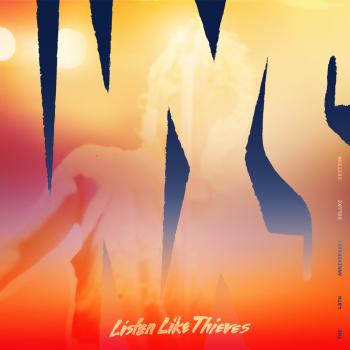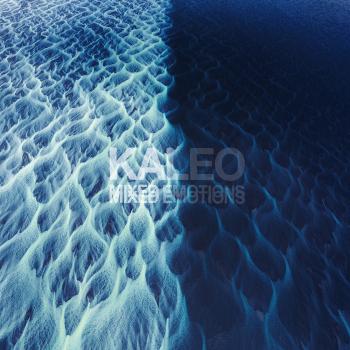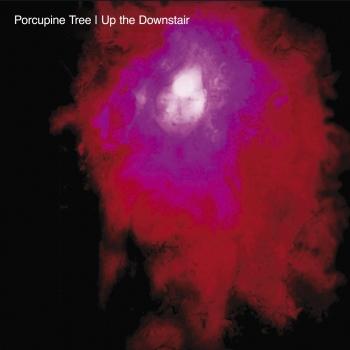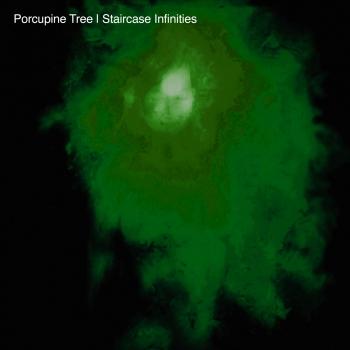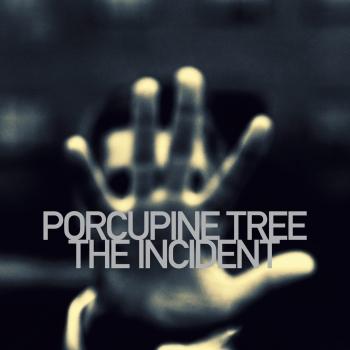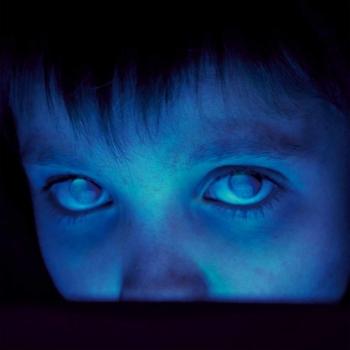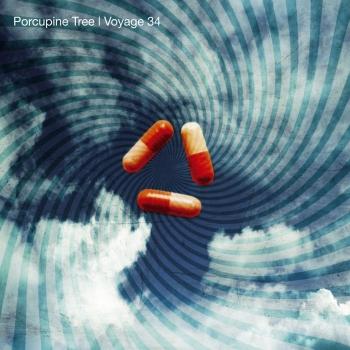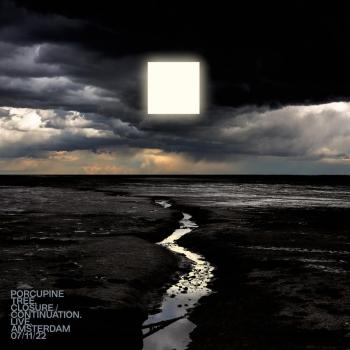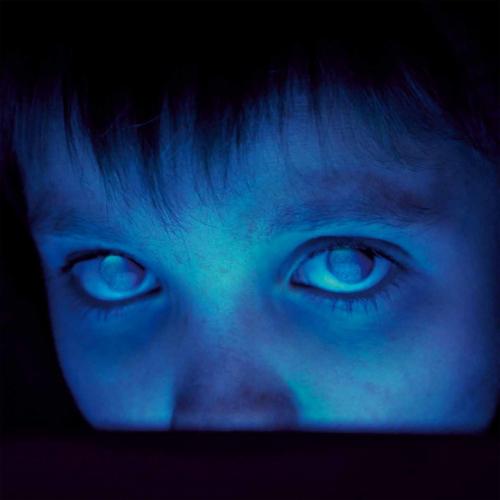
Fear of a Blank Planet Porcupine Tree
Album info
Album-Release:
2007
HRA-Release:
21.09.2020
Album including Album cover
- 1 Fear of a Blank Planet 07:30
- 2 My Ashes 05:09
- 3 Anesthetize 17:52
- 4 Sentimental 05:32
- 5 Way out of Here 07:37
- 6 Sleep Together 07:26
Info for Fear of a Blank Planet
Fear of a Blank Planet is the ninth studio album by Porcupine Tree.
The concept of the album was heavily influenced by Bret Easton Ellis’ novel Lunar Park. The lyrics deal with two typical neurobehavioural developmental disorders affecting teenagers in the 21st century: bipolar disorder and attention deficit disorder, and also with other common behaviour tendencies of youth like escapism through prescription drugs, social alienation caused by technology, and a feeling of vacuity—a product of information overload by the mass media. Steven Wilson described the main character of the story as “…this kind of terminally bored kid, anywhere between 10 and 15 years old, who spends all his daylight hours in his bedroom with the curtains closed, playing on his PlayStation, listening to his iPod, texting his friends on his cell phone, looking at hardcore pornography on the Internet, downloading music, films, news, violence…”.
"Porcupine Tree makes a triumphant return to experimental, non-linear style with 2007's Fear of a Blank Planet. Maybe Steve Wilson was afraid that the comparatively poppy Deadwing and In Absentia were edging too close to the mainstream, because he seems far less concerned with overtly accessible songwriting on Blank Planet. Even still, the cerebral, atmospheric sound on this album remains enormously compelling from almost the first moment. While there is no "radio single" on the disc -- certainly nothing with a conventional pop arc like Lightbulb Sun or "Trains" -- most songs transcend their complex structure and feel as provocative as any traditional rock tune. The aptly named "Sentimental," in particular, features Wilson's trademark lush arrangement with layers of vocals, piano, ambient synths, electric guitar, acoustic guitar, live drums and sampled drums -- but cutting through its tightly contained mosaic is an expertly constructed chord progression that evokes a desperate sense of tension and longing, developing incredible emotional momentum as the track progresses.
Blank Planet sounds like Wilson spent about half of his studio time on the guitar; it's full of buzzy, meticulously distorted solos that you can easily picture him folding into the prototypical Porcupine Tree amalgamation of drum machine, organ, and synthesizers during many long hours in front of the sound board. The quiet, English restraint with which Wilson croons seems to have saved his voice from the decay that so many male singers experience over a twenty year career, and lucky for us (and for him), the style still works perfectly with Porcupine Tree's sound. As a vocalist, he has an amazing capacity for juxtaposing cold, haunting moments against evisceratingly passionate ones, mostly thanks to the control he exerts over his instrument. Wilson's clear, boy's choir timbre sounds like a torrent of frenzy and hunger when he breaks free of it and explores the limits of his vox on tracks like "Sleep Together." His sleepy, melodic approach also has the benefit of ensuring that his poetic lyrics, which run the gamut from acerbic social criticisms to wrenching personal narratives, are always perfectly discernible. Though it's only six tracks long, each of the songs on Blank Planet is exquisitely crafted, even the 17-minute long "Anesthetize." Wilson has a great sense of flow, leading mournful, ambient ballads into graceful crescendos, and over long interludes that sway blissfully throughout rises and falls, only occasionally losing themselves to moments of plodding or meandering. At roughly 51 minutes, Fear of a Blank Planet is short by Porcupine Tree standards, but by measure of quality rather than quantity, it's one of the most substantial prog albums to come out in years." (Cammila Collar, AMG)
Steven Wilson, vocals, guitars, piano, keyboards
Richard Barbieri, keyboards and synthesizers
Colin Edwin, bass
Gavin Harrison, drums
Additional musicians:
Alex Lifeson, guitar solo (on "Anesthetize")
Robert Fripp, soundscapes on ("Way Out of Here")
John Wesley, backing vocals
London Session Orchestra
Digitally remastered
Porcupine Tree
is fronted by Steven Wilson, who also is well-known for his work producing other artists, from Swedish progressive metal group Opeth, to Norwegian chanteuse Anja Garbarek. He also has several other projects, including No-Man, Bass Communion, and Blackfield.
Porcupine Tree was founded as a self-indulgent creative outlet for Wilson, and the first major release was ‘On the Sunday of Life…’ in 1992, an album of psychedelia and studio experiments which bears little relation to the band’s current sound. From here, Wilson expanded the sound, creating the progressive rock/ambient trance fusion on the 30-minute long single “Voyage 34.” One of the only constants in Porcupine Tree’s music is how it continues to evolve and confront the expectations of the band’s fans from album to album.
In late 1993, the solo project became a band, as Colin Edwin (bass), Chris Maitland (drums), and Richard Barbieri (keyboards) were recruited to enable Porcupine Tree to perform live. Richard had previously been a member of one of the most experimental 80’s bands, Japan. The first real band album recorded was ‘Signify’ in 1996, which was followed by ‘Stupid Dream’ (1999), a breakthrough album which saw the band move into a more song-orientated direction. ‘Lightbulb Sun’ continued along that song-oriented tack, but, never content to rest on their laurels, Porcupine Tree changed course again for their next release, shuffling their lineup for the first (and to date, only) time. Chris Maitland departed and was replaced by Gavin Harrison in 2002, as the band signed a new international recording deal with Lava/Atlantic Records.
Since then, three major label album releases — ‘In Absentia’ and ‘Deadwing, and the Grammy-nominated “Fear of a Blank Planet’ — have augmented the band’s renown. Heavier than previous releases, the albums have found favor with older fans and introduced Porcupine Tree to a whole new audience.
In 2006, Porcupine Tree moved to the highly successful independent rock label Roadrunner for Europe. Since releasing Fear of a Blank Planet in 2006, the band have also released a number of titles on its own Transmission label, including the EP Nil Recurring, and the acoustic album We Lost the Skyline.
‘The Incident’ is Porcupine Tree’s tenth studio album and like ‘Fear Of A Blank Planet’ – which was an elaborate conceptual piece fuelled by a 21st century cocktail of MTV, sex, prescription drugs, video games, the internet, terminal boredom and subsequent escape – it takes the listener on a thrilling audio journey. In turns haunting, desolate, hypnotic and euphoric, its centre-piece is the title track – a stunning 55-minute musical statement that breaks down into 14 separate and often diverse (though interlinked) vignettes.
The tale begins slowly with ‘Occam’s Razor,’ gaining momentum and intensity with ‘The Blind House,’ ‘Drawing The Line,’ and ‘The Incident’ itself, though the group’s masterful manipulation of sounds and textures is never overlooked. The mellowness of ‘The Yellow Windows Of The Evening Train,’ for instance, is accompanied by the gentle crackle of a needle on vinyl – for all his skill as a producer and remixer, Wilson is a staunch supporter of the ‘old’ ways of listening to music. Incorporating both of these styles, ‘Octane Twisted’ somehow batters and seduces simultaneously, while ‘I Drive The Hearse,’ further sweetened by an uplifting guitar climax, is an intoxicating slice of melancholy with which to book-end the record’s 14-piece song cycle.
The seeds of the idea that led to ‘The Incident’ came to Steven Wilson as he became caught up in a motorway traffic jam whilst driving past a road accident.
“There was a sign saying ‘POLICE – INCIDENT’ and everyone was slowing down to rubber neck what had happened,” he recalls. “Afterwards, it struck me that ‘incident’ is a very detached word for something so destructive and traumatic for the people involved. And then I had the sensation that the spirit of someone that had died in the car accident entered into my car and was sitting next to me.
“The irony of such a cold expression for such seismic events appealed to me, and I began to pick out other ‘incidents’ reported in the media and news,” continues Wilson. “I wrote about the evacuation of teenage girls from a religious cult in Texas, a family terrorizing its neighbours, a body found floating in a river by some people on a fishing trip, and more. Each song was written in the first person and tried to humanize the detached media reportage.”
Additionally, Wilson delved back into incidents in his own life that had profound affected him, including a lost childhood friendship, a séance, his first love, and the day that he decided to give up secure employment to follow his dream of making music. The album’s epic song, an 11-minute Pink Floyd-flavoured masterpiece called ‘Time Flies’, for instance, begins with the line: “I was born in 1967.”
“1967 was possibly the most significant year in the history of rock music; ‘Sergeant Pepper’ by the Beatles and the first albums by Jimi Hendrix, Pink Floyd, and The Doors were all released that year,” says Steven. “I found myself wondering whether those facts were significant… maybe it’s why I ended up becoming a musician?”
‘The Incident’ poses a lot of important questions and will give the listener plenty of food for thought. As ever, though, Wilson is loath to provide what he thinks the answers might be. “One of the beauties of music – one of the reasons it’s still the greatest art-form, even over cinema – is that it demands so much of the person that experiences it, as well as those that create it.”
‘The Incident’ is certainly not the kind of album that will be fully absorbed in a single sitting. Indeed, repeated listenings reveal all sorts of hidden detail. “It’s definitely not an album that should inspire a passive response,” proclaims Wilson.
Pushed for a more succinct description he calls ‘The Incident’: “A slightly surreal song cycle about beginnings and endings and the sense that ‘after this, things will never be the same again’.”
Coming to the recording sessions following his first ever solo album, November 2008’s ‘Insurgentes,’ Wilson admits that the experience of having worked alone affected the direction of ‘The Incident.’ “Possibly because of having done that, this record is darker, more expansive, and more experimental,” he theorizes. “But when I write for Porcupine Tree, I know the sound I’m after.”
While ‘Fear Of A Blank Planet’ featured contributions from three special guests – Alex Lifeson of Rush, King Crimson’s Robert Fripp and the band’s live guitarist John Wesley – and ‘Insurgentes’ was also executed with considerable outside help, ‘The Incident’ is slightly unusual for being completely self-contained. Like its predecessor, however, it was self-produced by all four group members.
‘The Incident’ is completed by four standalone compositions – ‘Flicker’, ‘Bonnie The Cat’, ‘Black Dahlia’ and ‘Remember Me Love’ – all housed on a separate CD to stress their independence from the record’s main 14-part suite.
As with ‘Fear Of A Blank Planet’, the Wilson-helmed 5.1 mix of which was nominated in the Best Surround Album Award at the 2007 Grammies (eventually losing out to The Beatles’ ‘Love’), Porcupine Tree will be performing ‘The Incident’ in its entirety during the first shows of its next world tour.
Porcupine Tree is Steven Wilson, Colin Edwin, Richard Barbieri, and Gavin Harrison.
This album contains no booklet.




